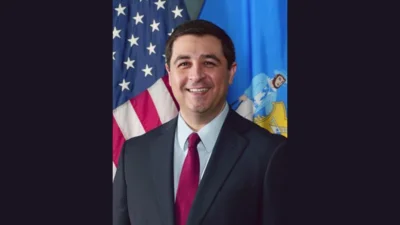U.S. Rep. Bobby Rush (D-Chicago) is teaming with Florida Republican Gus Bilirakis to oppose Medicare cuts to private practice doctors | U.S. Congress
U.S. Rep. Bobby Rush (D-Chicago) is teaming with Florida Republican Gus Bilirakis to oppose Medicare cuts to private practice doctors | U.S. Congress
U.S. Rep. Bobby Rush (D-Chicago) is leading bipartisan opposition to a federal rule change that will cut Medicare reimbursements to private practice medical specialists treating cancer, heart conditions, kidney failure and artery disease, who don't work for large hospital systems.
Rush and U.S. Reps. Gus Bilirakis (R-FL), Glenn Thompson (R-PA) and Lucy McBath (D-GA) are co-sponsoring a resolution that would stop the U.S. Centers for Medicare and Medicaid Services (CMS), which runs both health care programs, from enacting the cuts, which they say would cause further deterioration of private doctor's practices in favor of more mega-hospital consolidation.
"(Private practices) who may no longer be able to sustain cuts... (will) simply close their centers and continue the migration to large health systems," said a letter sent by Rush to CMS Deputy Administrator Meena Seshamani in September.
They said the cuts and resulting closures will actually increase costs for Medicare while making care less available.
"Office-based care... provides a critical site-of-service outside of the hospital to deal with non- COVID cases so hospitals can focus on a resurging pandemic," wrote Rush. "Many other patients dealing with cancer, end-stage renal disease, coronary disease, and other post-acute issues cannot wait for the cancer care, dialysis vascular access repair, imaging, physical therapy, etc. that is critical to keeping them alive or out of the hospital."
The American College of Radiation Oncology, which represents cancer doctors, also opposes the cuts as it says they will "worsen the health inequity gap, increase health system consolidation, and reduce Medicare beneficiary access and increase Medicare program costs."
"These cuts will harm our nation’s most vulnerable patients and should not be allowed to be implemented," said its president, Dr. Joanne. Dragun, in a news release.
According to a May report by the American Medical Association, nearly 40 percent of doctors in the U.S. now work for mega-hospital systems, up from 29 percent in 2012. This trend has increased sharply; a study by the Physicians' Advocacy Institute estimates that 48,400 doctors left independent practices to join large hospitals over the past two years.
Joining Rush in opposition to the cuts are a range of groups representing speciality doctors across the U.S., including the American Society of Diagnostic and International Nephrology, the American Vein and Lymphatic Society, the American Venous Forum, the Alliance for Physical Therapy Quality and Innovation, the Association of Black Cardiologists, the CardioVascular Coalition, the Dialysis Vascular Access Coalition, the Fibroid Coalition, the Outpatient Endovascular and Interventional Society, the Preventative Cardiovascular Nurses Association, the Renal Physicians Association, the Society for Cardiovascular Angiography and Interventions, the Society of Interventional Radiology, the Society for Vascular Medicine and United Specialists for Patient Access.






 Alerts Sign-up
Alerts Sign-up